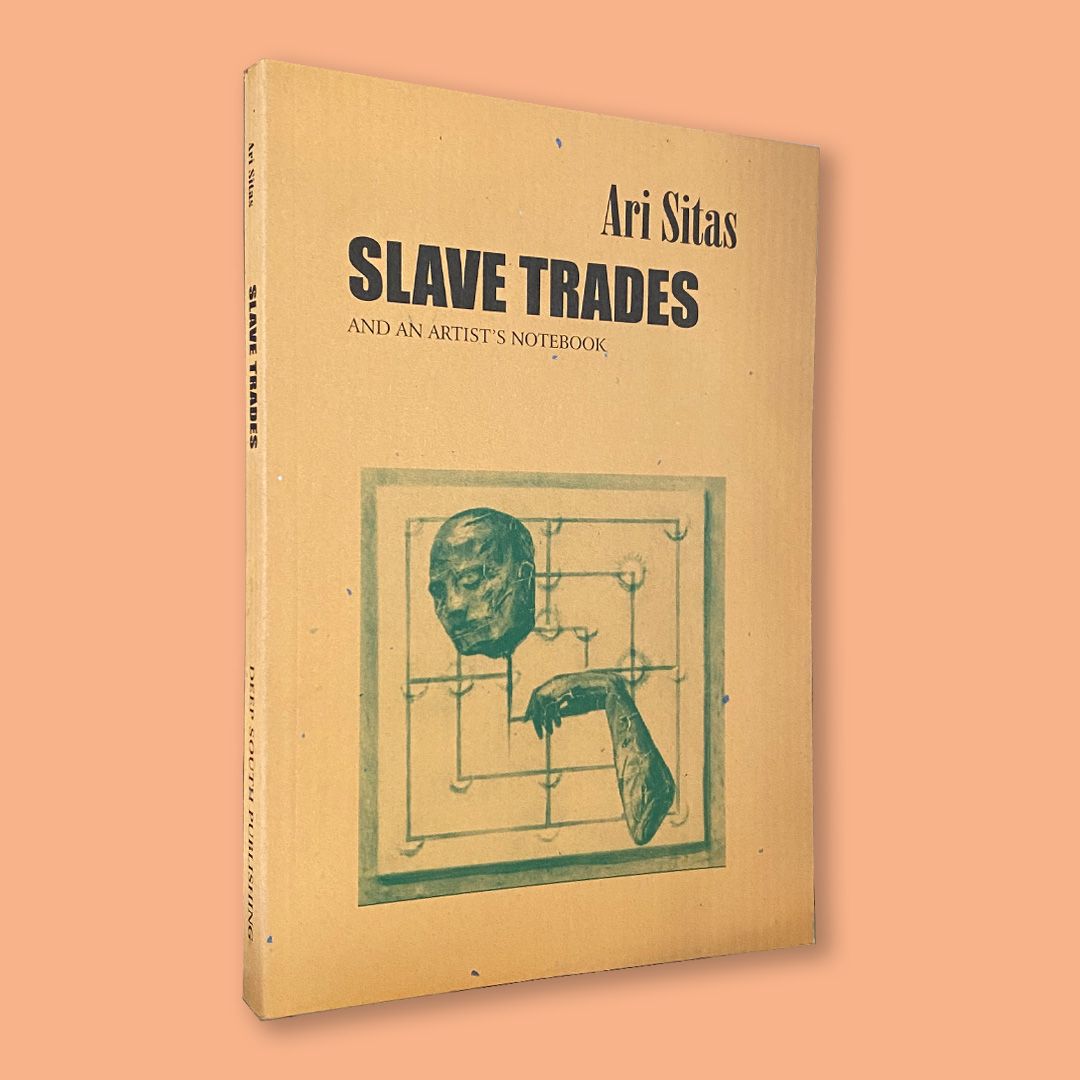What could the curriculum be – if it was designed by the people who dropped out of school so that they could breathe? The latest issue of Chimurenga provides alternatives to prevailing educational pedagogy. Through fiction, essays, interviews, poetry, photography and art, contributors examine and redefine rigid notions of essential knowledge.
Presented in the form of a textbook, Chimurenga 15 simultaneously mimics the structure while gutting it. All entries are regrouped under subjects such as body parts, language, grace, worship and news (from the other side), numbers, parents, police and many more. Through a classification system that is both linear and thematic, the textbook offers multiple entry points into a curriculum that focuses on the un-teachable and values un-learning as much as it’s opposite.
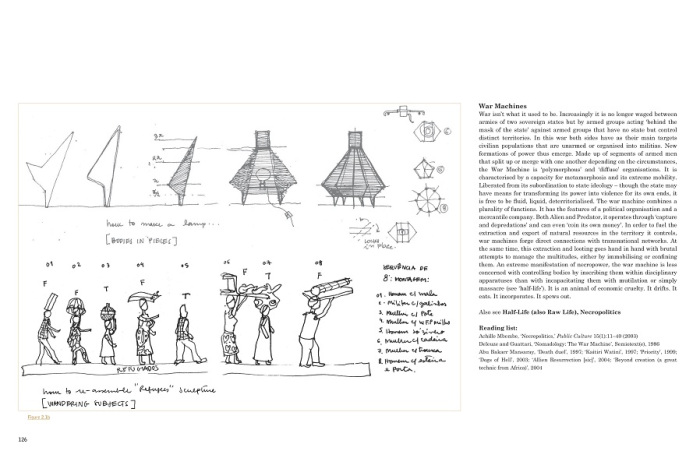
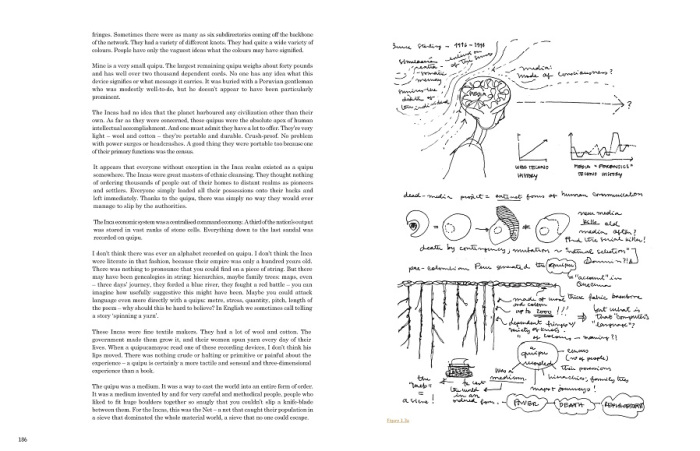
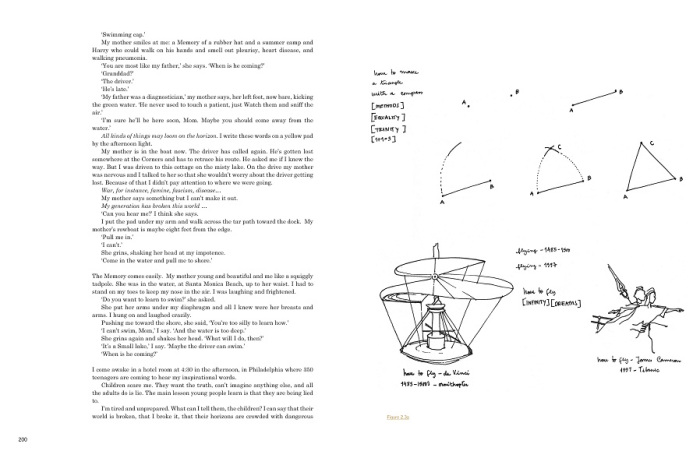
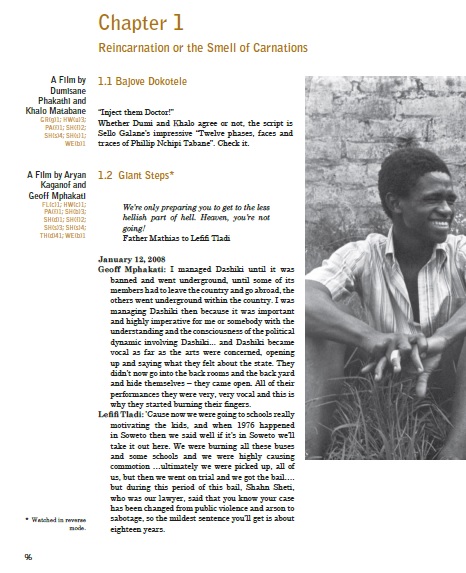
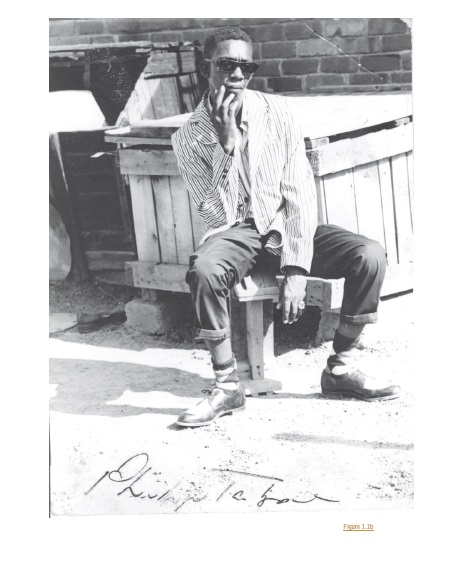


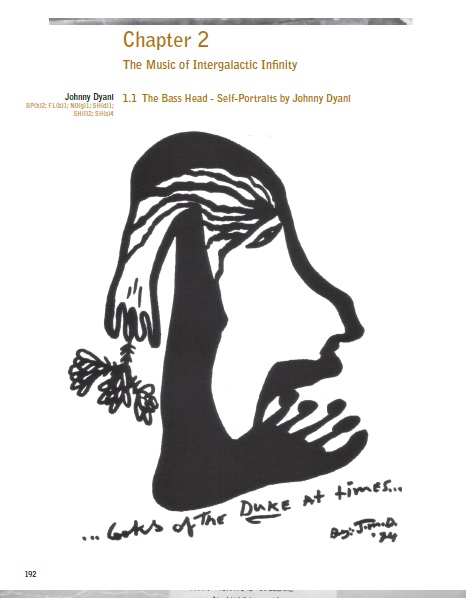
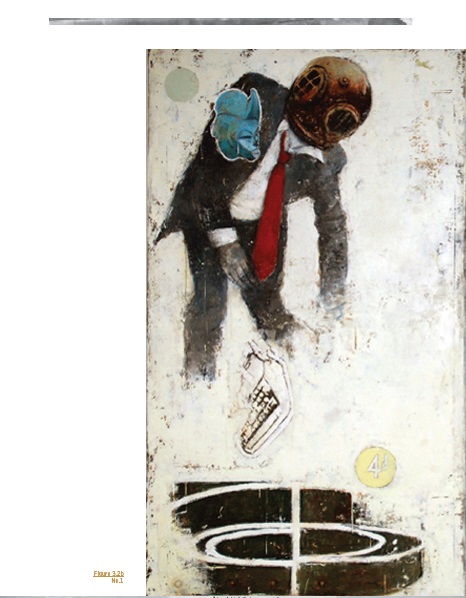
Inside: Amiri Baraka waxes poetic on the theoretics of Be-Bop; Coco Fusco flips the CIA’s teaching manual for female torturers; Karen Press and Steve Coleman instruct in folk-dancing; Dambudzo Marechera proposes a “guide to the earth”; Dominique Malaquais designs the museum we won’t build; through self-portraits Phillip Tabane and Johnny Dyani offer method to the Skanga (black music family); and Winston Mankunku refuses to teach.
Other contributors include Binyavanga Wainaina, Akin Adesokan, Isoje Chou, Sean O’Toole, Pradid Krishen, E.C. Osundu, Salim Washington, Sefi Atta, Ed Pavlic, Neo Muyanga, Henri-Michel Yere, Medu Arts Ensemble, Aryan Kaganof, Khulile Nxumalo and Walter Mosley amongst others. Cover by Johnny “Mbizo” Dyani.
Slave Trades and an Artist's Notebook by Ari Sitas (Deep South, 2000)
Slave Trades and an Artist's Notebook by Ari Sitas (Deep South, 2000)
In 1874, aged 20, the visionary poet Arthur Rimbaud abandoned poetry and left France for Africa.He spent some years in Cyprus and Aden before settling in Ethiopia during the reign of kings Menelik and Makonnen. He became a trader in coffee, guns and hides, and toyed with the idea of trading in slaves.
Ari Sitas' long poem Slave Trades is an attempt to express the voice of a cynical Rimbaud, his Ethiopian "wives", the voices of the marketplace, priests, poets and kings. These voices form a fugue of vivid images of early colonial brutality and African resistance, both political and spiritual: "I hope still, therefore I am".
Artist's Notebook, the second part of this volume, is a fictional account for the same terrain set in the 1990s. Ethiopia is war-ravaged, and a group of disaffected people, some of them descendants of the characters in Slave Trades, are puzzling out their roots and their identities.

